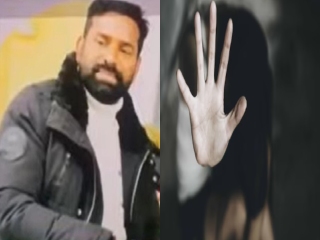
New Delhi – ‘On what basis is the annual income limit of Rs 8 lakh fixed with regards to reservation for the economically weaker sections ?’ When the Central Government could not reply to Supreme Court on this, the SC warned the Government that it would suspend the ordinance declaring reservations if it did not give a satisfactory reply. ‘You must have some demographic or sociological or socio-economic data. You just cannot pull out Rs 8 lakh from thin air … you are making unequals equals by applying the Rs 8 lakh limit’, the Court told the Central Government.
The Supreme Court asked the Government if it wants to revisit the limit of ₹8 lakh annual income fixed for determining the Economically Weaker Sections category for reservation in #NEET admissions for medical courses under the all-India quota.https://t.co/JciGUE0zKy
— The Hindu (@the_hindu) October 22, 2021
The decision to give 10% reservation to economically weaker sections in the Medical Eligibility test (National Eligibility Cum Entrance Test) has been challenged in the Supreme Court. During the hearing on 7th October, the Court had directed the Centre to submit an affidavit explaining the financial criteria, but the Centre failed. (Even after the Court’s order if work is being done at such a slow pace, one can imagine what will happen to some work of the common man ! – Editor) The Central Government had considered the same criteria of OBC reservation while fixing the income limit for the reservation of economically weaker groups. The Court further stated that these are strategic decisions, but the judiciary has to intervene to maintain balance in the society.
Supreme Court directs Centre to disclose exercise undertaken under Article 15(2) of the Constitution in plea challenging 27% reservation for OBCs and 10% reservation for EWS in 50% All India Quota seats contributed by states for PG Medical courses.https://t.co/RIGuK4OxmR
— LawBeat (@LawBeatInd) October 21, 2021

 Hindu youth in Udupi (Karnataka) beaten up and prevented from going to the Temple by fanatic Muslims
Hindu youth in Udupi (Karnataka) beaten up and prevented from going to the Temple by fanatic Muslims In Jashpur, Chhattisgarh, female students are being pressured to convert to Christianity at a Christian missionary-run college
In Jashpur, Chhattisgarh, female students are being pressured to convert to Christianity at a Christian missionary-run college Rape of a young woman by Pastor Jashan Gill in Gurdaspur (Punjab)
Rape of a young woman by Pastor Jashan Gill in Gurdaspur (Punjab) Young woman abducted and gang-raped by Muslims in Bengaluru
Young woman abducted and gang-raped by Muslims in Bengaluru In Bengal, unidentified persons set fire to a worship pandal and Deities Idols
In Bengal, unidentified persons set fire to a worship pandal and Deities Idols In Jashpur, Chhattisgarh, female students are being pressured to convert to Christianity at a Christian missionary-run college
In Jashpur, Chhattisgarh, female students are being pressured to convert to Christianity at a Christian missionary-run college